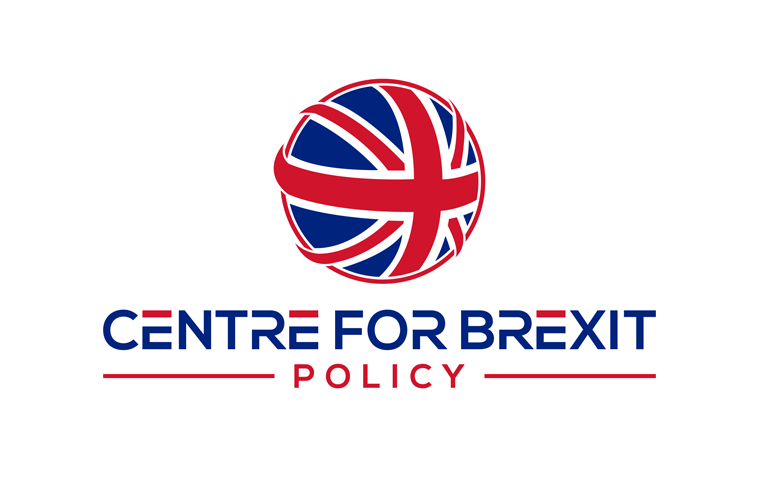- Big tax cuts and £24bn spending stimulus forms £100bn supply-side package
- Reduce basic rate of tax to 15 per cent and top rate to 30 per cent; reduce VAT now
The new Prime Minister should overrule ‘Treasury Orthodoxy’ and slash taxes for individuals and companies by almost £100bn to double UK economic growth and prevent a recession, a group of leading economists have urged in a major new report to be released this week.
The report, ‘Delivering a New Growth Strategy for the UK Economy’ by the Centre for Brexit Policy (CBP), slams the “extraordinary failure” of the civil service machine to focus on growth in recent decades, which the authors argue has focused excessively on balancing the books in the short-term to the long-term detriment of the UK economy.
Key contributors to the report include Margaret Thatcher’s former economics adviser Professor Patrick Minford and Warwick Lightfoot, who has advised three former Chancellors.
The report goes beyond Tory leadership favourite Liz Truss’s plans merely to cancel planned tax rises, which, in themselves, the authors expect to lead to a substantial rise in growth compared to the trajectory under current policy.
As part of these plans, the report advises an immediate cut in VAT to offset the failure to index income tax thresholds to inflation and an immediate rise in Universal Credit to eliminate the lag in its indexation to prices; these would deal with the effects of the current appalling cost of living crisis
The report also urges a £100bn package of tax cuts and targeted public spending rises to grow the UK economy by a projected additional 2.4 per cent per annum.
This package, by generating higher growth over the next decade, produces extra revenues and so pays for itself and therefore helps to bring the debt ratio down rapidly.
Professor Minford said: ‘ The Treasury Orthodoxy embraced by the Government up to now has sacrificed a tax system supporting growth to a policy of stopping new public borrowing.
“Yet solvent public finances are ensured by matching spending to revenues over the long term, not by short-term debt rules that prevent both optimal supply-side reform of taxation and a fiscal response to the business cycle that complements monetary control of inflation.
“Our aim here is to explain how both optimal tax reform and good fiscal policy can be taken forward at this critical moment for the British economy.”
Key recommendations include:
- Cutting corporation tax by 10 percentage points from existing levels – giving the UK the most competitive corporate tax rate in the G20 and going well beyond Truss’s plan to cancel Rishi Sunak’s rise to 25 per cent.
- Abolishing the Additional Rate of Income Tax (45 per cent) and reducing the Higher Rate to 30 per cent.
- Slashing the tax bills of the vast majority of workers by reducing the Standard Rate of Income Tax by 5 percentage points to 15 per cent.
- Increasing public spending on infrastructure and other public services vital for growth by £24bn to help level up the country.
Furthermore, the authors expect this £100bn fiscal package, to reduce sharply the UK’s debt ratio (debt/GDP) to 50 per cent by 2029 – as a result of higher economic growth and increased tax receipts.
In contrast, the authors warn how under current policies the UK’s debt ratio would reach 125 per cent by the mid-2030s, due to a 2.5 per cent fall per annum in growth.
Other economic reforms proposed include:
- Scrapping high marginal tax rates that reduce economic performance, such as the withdrawal of the personal allowance for higher earners.
- Pressing ahead with the EU-law deregulation recommendations in Sir Iain Duncan Smith’s recent Government commissioned TIGGR report.
- Dropping Gordon Brown style short-term fiscal targets – which have distracted from a long-term focus on growth and ignored the dynamic effects of tax cuts – in favour of long-term ‘solvency targets’ of the debt/GDP ratio ten years ahead, to check that spending plans are consistent with the ratio being maintained at a safe sustainable level.
- Aiming for effective ‘unilateral free trade’ by signing trade deals with all major economies. The report’s authors estimate this could increase UK productivity by 4 per cent and bring down prices by 20 per cent against world levels.
In its final chapter, the report chastises the Office for Budget Responsibility (OBR) for its “form in gloom” in its forecasts. It explains how overly pessimistic projections to the tune of £88bn for its 2021 Government PSBR forecast pushed the Government into raising taxes prematurely and recommends that the OBR be reformulated as an economic analysis unit supporting a new Council of Economic Advisers reporting to Number 10.
The report calls for a detailed review of how the Treasury and Bank of England allowed inflation to get out of control and deplores how “it should not be necessary for ministers to have to import teams of outside advisers to remedy Whitehall failings and resulting obstinacy.”
ENDS
Notes for Editors:
- Projections for UK economic growth use models developed by the Cardiff research team from the original Liverpool Macroeconomic Model of the UK.
Click here to read the report in full.

